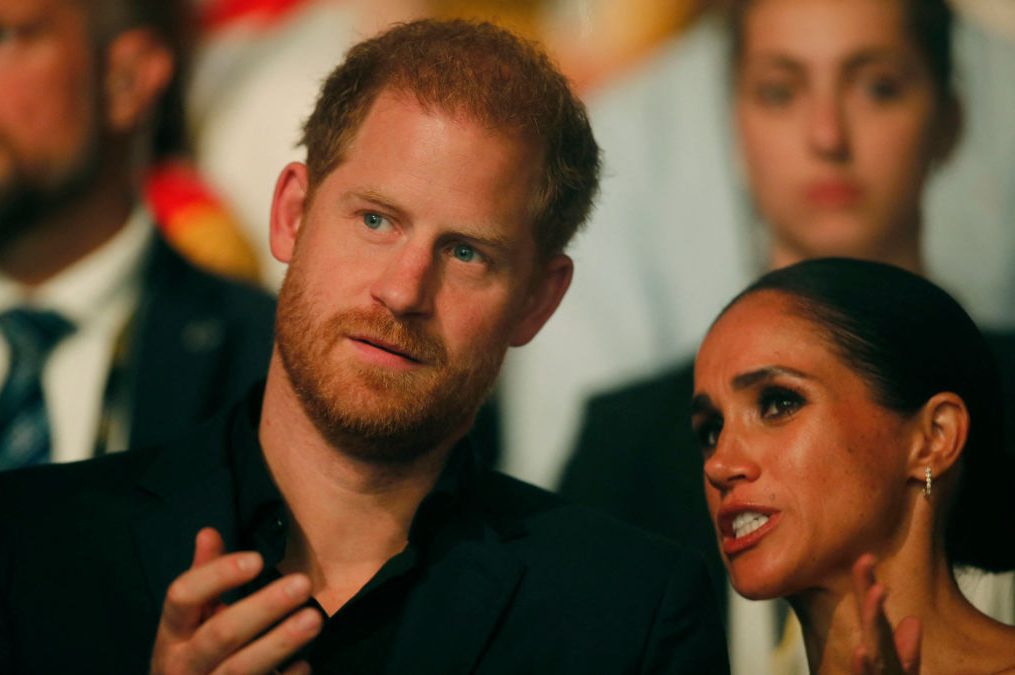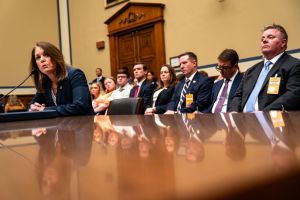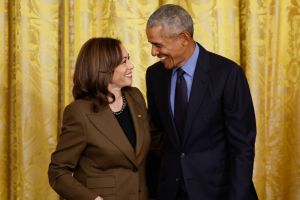When you exist in a mixed-race family like I do — black dad, white Jewish mom, Asian uncle, Latino ex-husband — race is something that’s hard to escape. We talk about our similarities, explore our differences and consider how the experiences of one generation might be similar or different for the next. Race is somehow always on our tongues. But that doesn’t necessarily make my family racist. Nor does it make the royal family racist either.
Back in March 2021 during Oprah Winfrey’s sit-down with the Duke and Duchess of Sussex, I was horrified by their now infamous exchange over the alleged concern by unnamed Windsors about the skin color of the Sussexes’ first kid. We all know what supposedly went down. Evil mysterious senior royals, alleged Meghan and Harry, dared to inquire about the appearance of what would essentially be the first official mixed-race kid in the clan’s entire thousand-plus-year history.
Meghan was outraged, Harry taken aback, and Oprah nothing less than aghast. But I never bought it. Because there is a vast difference between mere curiosity around race and outright fear or concern. Take it from someone who knows.
Nearly a decade ago when my now former-husband and I embarked on the process that would lead us to parenthood, race was an ever-present part of that journey. At least for myself. Nowhere more so than the constant wonder I had about what my multiracial offspring might look like. How dark, how light — how curly the hair or broad the nose? This didn’t make me racist, merely curious and excited. The same type of wonderment, I suspect, felt by those now-vilified royals — and, just as likely, by Meghan’s family as well. But no one would dare call dear Doria Ragland, Meghan’s mother, racist.
The taboo around speaking about race has reached levels that are now nothing less than comical. Here is Meghan Markle — who’s crafted her entire public persona around her mixed-race identity and endured (and complained about) very real examples of racism from the press — suddenly declaring race talk off-limits. That might be an option if the Sussexes would offer the world something else to talk about. As both a commoner and royal, Meghan has cannily made identity issues such as race and gender cornerstones of her ever-evolving agendas. Although now irksome and annoying, this was laudable and steeped in merit during Markle’s days in court. After all, if she wasn’t going to talk about these issues, who would?
For someone who looks like me and has grown up like me, in many ways Meghan felt like the princess I’d always wanted growing up. I loved seeing Markle — another California kid like myself — thrive in a world where she’s proudly black and white. I loved hearing her talk about her mixed-race identity when doing so can still feel like a revolutionary act. Particularly here in America.
Don’t forget, barely fifteen years ago Barack Obama — as white as he is black — essentially conceded his whiteness for political expediency when he ran for president as America’s first “black” Democratic nominee. Of course I knew he wasn’t entirely black — and he knew he wasn’t entirety black. But with his African American wife and pair of “black” kids, the optics edified the story — even if it wasn’t the entire story. Helping things along was the chastening absence of Obama’s white mother who passed away when he was just thirty-five. Had she been around like my own mother fortunately is, it would have been far harder to dismiss Obama’s whiteness.
Meghan has laudably taken another track — declaring early, publicly and proudly that she’s mixed-race. Many others, like Obama, have chosen not to. Halle Berry, whose mother is white, adhered to the narrative around her status as the first “black” woman to win a best actress Oscar back in 2002. Some two decades later, Vice President Kamala Harris has cultivated a political persona that leans far heavier into her black side in lieu of her Indian side. And let’s not forget about controversial New York Times journalist Nikole Hannah-Jones, who’s built her entire career around African-American racial grievances despite being born to a white mother. Sure, she’s not exactly hiding it. But I suspect few folks know the infamous author of the 1619 Project is as white as she is black. It’s not an opinion — but a genetic fact.
It takes a lot to stand up to this kind of racial orthodoxy, and I was always impressed by Meghan’s moxie. Despite the fact that according to the 2020 Census, mixed-race Americans are now some 10 percent of our nation’s population, those who are mixed white and black still face an outsized burden to keep it on the down low. To blacks, we exist as an existential threat to dwindling political numbers in the face of fast-rising Hispanic communities. We also stand as a rebuke to conventional notions around African-American achievement — both the good and the bad — and the roles nature and nurture play in this highly-charged debate.
To whites, folks like Meghan and me directly challenge the legacy of the venal “one-drop” rule that’s as outdated as it is obscene. With our white parents, we have every right to claim our whiteness even if we are not actually white. Again, this is generic fact — not an opinion.
And so too is the fact that any child of Meghan and Harry would likely look different from all of their previous ancestors. And that’s just fine. No one said a royal has to be white — least of all the royal family. But faced with the specter of a royal actually not being white, curiosity is an organic — if not logical — outcome. True, the monarch is anointed by God, but ultimately he’s merely human. It’s human to be curious about race — but take it from me, that doesn’t make you racist.
This article was originally published on The Spectator’s UK website.





















